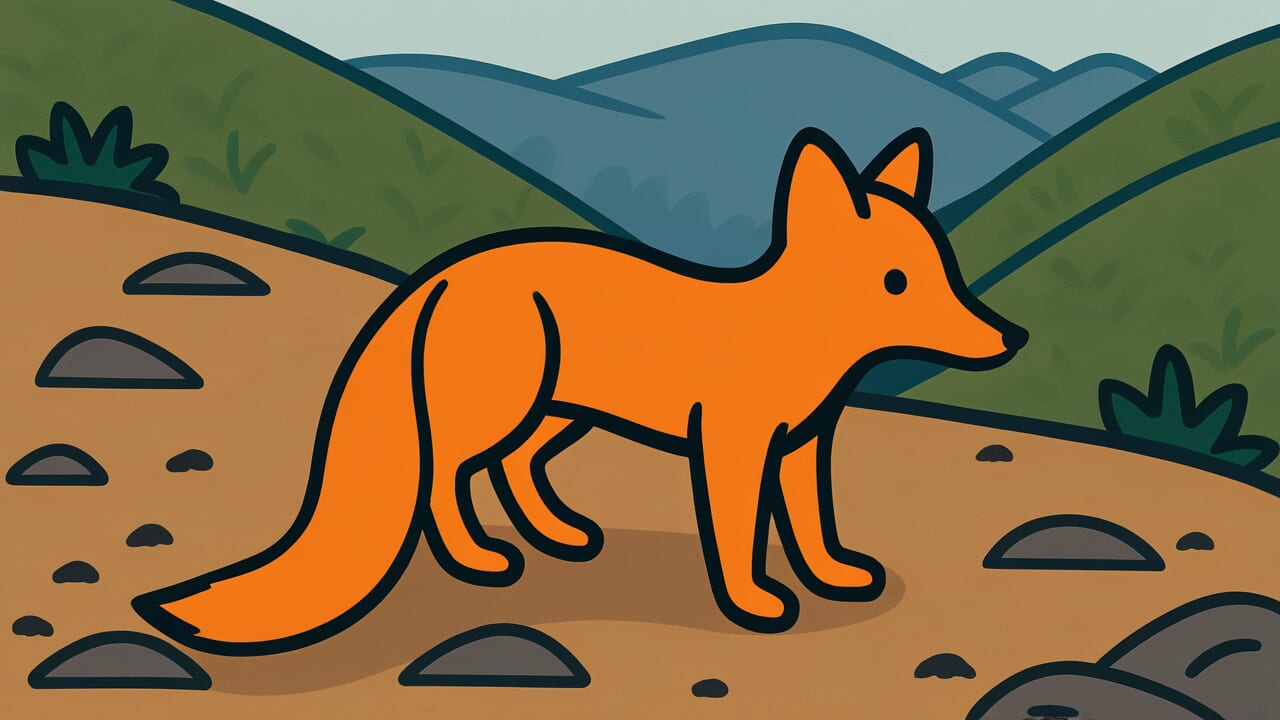How to Read “When a fox dies, it turns its head toward the hill”
Kitsune shishite, oka ni kubisu
Meaning of “When a fox dies, it turns its head toward the hill”
This proverb means that love for one’s hometown never changes, even until death. No matter how far you go or how many years pass, people keep feelings for their birthplace deep in their hearts.
People use this saying when someone who has lived away from home for many years suddenly feels nostalgic. It also fits when elderly people express their wish to return home.
The phrase appears in contexts where people understand and sympathize with the desire to return home at life’s end.
This expression goes beyond simple nostalgia. It communicates the depth of human attachment to where we belong.
Today, globalization means more people live far from their birthplace. Yet this proverb captures an enduring truth: special feelings for our roots never disappear.
Origin and Etymology
This proverb likely comes from the ancient Chinese text “Book of Rites” (Liji). The original phrase was “狐死正丘首,” describing how foxes turn their heads toward their birth hill when dying.
Ancient Chinese people believed foxes had mysterious habits. No matter how far they traveled, foxes would try to return to their birth hill when sensing death.
If they couldn’t return, they would at least face that direction when taking their last breath. This observation became a metaphor for deep longing for home.
The saying came to Japan long ago. People have used it to express attachment and nostalgia for their hometown.
Science hasn’t confirmed whether foxes actually behave this way. But ancient people carefully observed animals and saw their own emotions reflected in animal behavior.
The word “kubisu” (turns its head) is particularly meaningful. It describes turning toward home at life’s final moment.
This instinctive action at death shows the irresistible pull of nostalgia. No matter how far you travel, your hometown always remains in your heart.
This proverb expresses universal human feelings through an animal’s image, making it deeply resonant.
Usage Examples
- He succeeded overseas, but in his later years, “when a fox dies, it turns its head toward the hill”—he returned to his hometown to live quietly
- After working in the city for decades, I reached retirement and felt “when a fox dies, it turns its head toward the hill” strongly, so I decided to return to my rural birthplace
Universal Wisdom
“When a fox dies, it turns its head toward the hill” speaks to an instinctive human craving for “a place to return to.” Why can’t people forget their hometown?
Because hometown isn’t just a geographical location. It’s the origin point of who we are.
We all experience our first landscape, first words, and first warmth in our hometown. These experiences are carved deep into our consciousness.
They become the foundation of our personality. No matter how far we go or how different our environment becomes, that foundation never changes.
In fact, the farther we go, the more we realize how large that foundation is.
This proverb has been passed down because humans are fundamentally “beings with roots.” Modern society offers freedom of movement.
We can live anywhere in the world. But precisely because we can move freely, the question “where did I come from?” becomes more important.
Turning toward home when facing death is like a ritual that closes life’s circle. Returning to where you departed, going back to the starting point.
By completing this circle, people may find meaning in their lives.
Attachment to hometown is attachment to yourself. It’s the power to affirm your own life.
When AI Hears This
A fox seeking its home hill when dying might actually be a survival strategy encoded at the genetic level. Just as salmon always return to their birth river, animal brains have a system called “genetic inheritance of spatial memory.”
What’s interesting is that this doesn’t pass through DNA sequences themselves, but through epigenetics. The on-off patterns of genetic switches are inherited from parent to child.
Research on prairie voles shows that memories of places experienced by grandparents can influence the behavior of grandchildren who never knew those places directly.
The hippocampus in the brain contains place cells that respond to specific locations. The activation patterns of these cells may be transmitted across generations.
Foxes seeking their birth hill might not be following individual memory. Information about places ancestors judged safe generations ago may be genetically imprinted.
Humans feeling special emotions toward hometown isn’t just about memories either. There’s a biological aspect: the instinct to return to a safety zone.
When people try to return home during disasters, it’s a genetic-level command beyond logic.
The shocking discovery is that what we thought was emotion is actually a survival program optimized over tens of thousands of years.
Lessons for Today
This proverb teaches us the importance of valuing our roots. As globalization advances and many people live far from their birthplace, this lesson becomes even more important.
Wherever you are now, whatever life you’re living, don’t forget where you grew up. Don’t forget the people who raised you or the values you formed.
This doesn’t mean being bound by the past.
Rather, knowing what soil your tree grew from gives you stronger confidence to move forward.
Modern society demands that we adapt to new environments and keep changing. But having something unchanging amid change brings peace of mind.
Feelings for hometown become your compass when you’re lost and your comfort when you’re tired.
Sometimes go back home. If you can’t physically return, remember it in your heart.
Your origin is there. The power to support you is there.
Take pride in your roots. Carry the strength you gained from them as you spread your wings into the new world.
That’s the message this proverb gives to those of us living today.



Comments